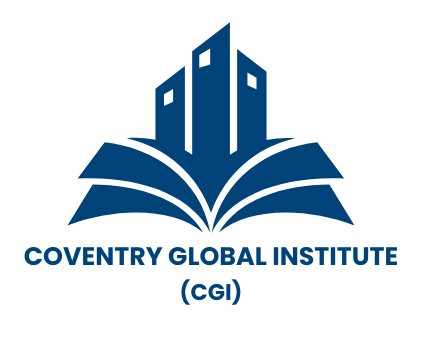Training and Education
Training and Education Courses with Outlines:
- The Impact of Technology on Educational Curricula
Explores how advancements in technology influence curriculum design, learning methodologies, and student engagement. - Integrated Skills in Total Quality Management and Continuous Improvement
Focuses on implementing quality management systems in education to enhance learning outcomes and institutional effectiveness. - Enhancing Critical Thinking Skills in Curriculum Development
Covers strategies to integrate critical thinking into curricula, fostering analytical skills and problem-solving abilities in students. - Preparing and Evaluating Training Curricula and Assessing Training Needs
Teaches the principles of designing, implementing, and evaluating training programs based on workforce skill requirements. - Developing the Capabilities of Supervisors and Mentors in Curriculum Development
Provides supervisors and mentors with the skills to refine curricula, mentor educators, and drive instructional improvements. - Developing Methodological Organizations
Explores structured approaches to curriculum planning, learning objectives, and syllabus alignment with educational standards. - The Role of Supervision and Inspection in Curriculum Monitoring
Teaches methods for evaluating curriculum effectiveness, ensuring compliance with educational policies, and improving instruction. - Classroom Management Strategies
Equips educators with techniques for maintaining discipline, fostering student engagement, and managing classroom dynamics. - Decision-Making in Education
Covers decision-making frameworks for educators, emphasizing data-driven analysis and strategic planning in education. - Managing and Evaluating Student Behaviour
Provides educators with behaviour management strategies, student engagement techniques, and positive reinforcement approaches. - Addressing Student Attention and Focus Challenges
Explores techniques to mitigate mental wandering, improve student concentration, and foster active learning. - Problem-Solving Methodology in Education
Introduces problem-solving frameworks to develop students’ analytical skills and promote independent learning. - Innovative Teaching Methods
Explores creative approaches to instruction, including experiential learning, gamification, and collaborative teaching. - The Effect of Ambiguity on Classroom Activities
Examines the role of uncertainty in student learning and strategies to enhance classroom engagement and participation. - Flipped Classroom Strategy
Teaches educators how to implement flipped learning models, integrating technology for student-cantered instruction. - Introduction to Overcoming Learning Difficulties
Covers learning disabilities, intervention strategies, and personalized learning techniques for struggling students. - Library Management and Development in Schools
Focuses on enhancing school libraries, promoting digital literacy, and optimizing resources for student learning. - Learning, Assessment, and Digital Interaction
Explores digital assessment tools, online learning environments, and strategies for enhancing student engagement. - Integrating Education with Real-World Applications
Teaches methodologies for bridging classroom learning with practical, real-life applications for student success. - Educational Technology Models and Applications
Explores emerging trends in educational technology, including AI, VR, and adaptive learning platforms. - Designing and Preparing Training Packages
Provides a structured approach to designing instructional materials, lesson plans, and training modules. - Digital Assessment Tools for Education
Covers the use of digital assessment platforms, e-portfolios, and online grading systems for evaluating student progress. - Principles, Strategies, and Applications of Educational Technology
Teaches educators how to effectively integrate educational technology into teaching and curriculum design. - The Art of Public Speaking for Educators
Develops effective communication skills, presentation techniques, and audience engagement strategies for teachers. - E-Learning Strategies and Implementation
Covers best practices in developing, managing, and optimizing e-learning platforms for distance education. - Emotional Intelligence for Educational Leaders
Explores the role of emotional intelligence in leadership, teacher-student relationships, and institutional management. - General and Interactive Teaching Methods
Covers traditional and modern teaching methodologies, emphasizing interactive and student-cantered approaches. - Classroom Management in Virtual Learning Environments
Teaches best practices for managing online classrooms, fostering student engagement, and handling digital challenges. - Digital Teacher Skills for the 21st Century
Covers essential skills for digital teaching, including online classroom management, digital literacy, and virtual engagement. - Artificial Intelligence and Innovation in Education
Explores the impact of AI in education, adaptive learning technologies, and automation in instructional design. - Professional Development for Teaching Assistants
Provides training on classroom support strategies, student engagement techniques, and teacher collaboration skills. - Active Learning Strategies
Teaches hands-on, participatory learning techniques to enhance student comprehension and retention. - Identifying and Addressing Learning Difficulties
Explores early detection of learning challenges, intervention strategies, and tailored teaching methods. - Professional Development for Teachers
Covers career growth strategies, continuous learning, and best practices in modern pedagogy. - Developing Public Speaking and Presentation Skills
Enhances educators’ communication abilities for lectures, presentations, and student interactions. - Learning the Art of Effective Lecturing
Teaches speech delivery, audience engagement, and content structuring for impactful educational presentations. - Educational Services Administration
Covers managing school operations, student services, and institutional policies for effective educational administration. - Creativity and Innovation in Education
Focuses on creative teaching methodologies, curriculum design innovation, and fostering an entrepreneurial mindset in students. - TKT Essentials (Teaching Knowledge Test Preparation)
Prepares educators for the Cambridge TKT certification, covering essential teaching methodologies and assessment techniques. - STEAM Methodology in Education
Teaches interdisciplinary approaches integrating science, technology, engineering, arts, and mathematics in education. - Training Program for New Teachers
Provides foundational teaching skills, classroom management techniques, and instructional design principles for new educators. - Training of Trainers (TOT) Certification
Covers adult learning principles, instructional design, and trainer development for corporate and academic trainers. - The Art of Understanding and Managing Different Personality Types
Teaches educators and trainers how to effectively interact with diverse student personalities and learning styles. - Modern Leadership Roles of School Principals in Education Quality
Explores leadership strategies for improving school performance, faculty management, and student outcomes. - Advanced Skills in Educational Technology
Covers advanced applications of EdTech tools, LMS platforms, and data-driven instruction strategies. - The Art of Management and Leadership in Educational Institutions
Provides training on institutional leadership, faculty development, and strategic educational planning. - Total Quality Management in Educational Institutions
Explores quality assurance frameworks, accreditation processes, and performance measurement in education. - Curriculum and Educational Program Evaluation
Teaches educators how to assess, refine, and improve curricula based on learning outcomes and assessment data.
